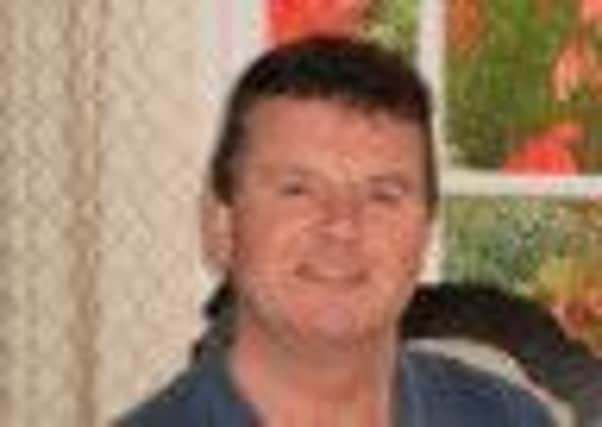Obituary: Peter Callander, songwriter


He was never really famous, but Peter Callander enjoyed huge commercial success as a songwriter, with a string of hits that many would regard as being among the most annoyingly catchy of the 1960s and 1970s.
Callander had no great pretensions to be another Bob Dylan, baring his soul and trying to set the world to rights with songs that he had written to sing himself. He wrote or co-wrote unpretentious pop songs for others that often blended horribly sentimental stories with horribly insistent tunes.
Advertisement
Hide AdAdvertisement
Hide AdThey included Daddy Don’t You Walk So Fast, a 1971 hit in the UK for Daniel Boone, about a man who is on the point of leaving his wife until he hears the pleas of his little daughter running after him crying: “Daddy don’t you walk so fast.” Well, what could he do? He turns around and goes back home.
And then there was Billy Don’t Be a Hero, a 1974 chart-topper for Paper Lace, about a young soldier who is on the point of leaving his sweetheart to go off to war until he hears her pleas to come back and make her his wife.
Well, what does he do? He goes off to war, volunteers to ride out for reinforcements and gets himself killed.
Callander provided songs for many of the biggest names of the time – Tom Jones, Lulu, Cilla Black, Dusty Springfield, Cliff Richard and Tony Christie.
His songs were never cool, and serious music fans hated them. But they sold in their millions, so someone liked them.
And they are very much a part of our pop culture.
Billy Don’t Be a Hero was about the American Civil War, but was interpreted at the time as a comment on Vietnam. At the end of the song Billy’s sweetheart gets a letter saying he died a hero. She throws it away. And the song, light, fluffy, inconsequential, made sufficient impact for the BBC to ban it during the Gulf War.
Callander drew on familiar images and stories in our culture, or rather American culture – gangsters and soldiers, love and loss and troubled relationships – and he distilled them, with a great deal of craft, into tight, little narratives with the emotional heft to reduce a grown man to tears.
He co-wrote The Ballad of Bonnie and Clyde after seeing the film with Warren Beatty and Faye Dunaway. It was a No.1 for Georgie Fame in 1968 and Johnny Hallyday, who was cool, recorded it in French.
Advertisement
Hide AdAdvertisement
Hide AdCallander even managed to pull off the pop music equivalent of carrying coals to Newcastle. Bo Donaldson and the Heywoods took his American Civil War epic Billy Don’t Be a Hero to No.1 on the other side of the Atlantic. And Paper Lace, who came from Nottingham, topped the US charts with The Night Chicago Died, a song about Al Capone.
The son of a chef, Peter Robin Callander was born in Lyndhurst, Hampshire, in 1939, and initially he too trained as a chef. He entered the music business as a “song plugger”, promoting newly published songs, trying to get artists to perform or record them.
But he also developed a career as a lyricist and from very early on his talent for narrative and drama was evident. He wrote the lyrics for the theme song for the 1965 film The Liquidator, one of a string of films trying to cash in on the success of James Bond. The song was very much in the style of the Bond themes and was sung by Shirley Bassey.
He also wrote the lyrics for the 1966 Eurovision Song Contest entry A Man Without Love, sung by Kenneth McKellar in a full Highland outfit. This was before Britain really got its head round what Eurovision was about, but Callander was alive to the potential of European pop and translated several European songs into English.
It was round about this time that Callander met Mitch Murray, with whom he wrote many of his biggest hits. Murray had already written two No.1s for Gerry and the Pacemakers, How Do You Do It? and I Like It, but he was hardly one of music’s great lyricists. So they joined forces and enjoyed almost immediate success with The Ballad of Bonnie and Clyde.
The songs they composed together include Even the Bad Times are Good, a hit for the Tremeloes; Cliff’s Goodbye Sam, Hello Samantha; Manfred Mann’s Ragamuffin Man; Hitchin’ a Ride, a hit for Vanity Fare in 1970 and for Sinitta 20 years later; Tony Christie’s I Did What I Did for Maria and Paper Lace’s big hits.
While many songwriters have complained over the years that they have received only a pittance from their work, Callander and Murray had the wherewithal to establish their own music publishing company, Intune. They set up their own record label Bus Stop, on which the Paper Lace songs were released. They were also directors of the Performing Rights Society.
Success enabled Callander to enjoy the finer things in life. He indulged his passion for horse racing, not just as a punter, but as an owner. His horse The Songwriter was trained by Jenny Pitman and ran in the Grand National in 1977. And he was a founder of SODS (Society of Distinguished Songwriters), an invitation-only dining club whose ranks also include Gary Barlow and Tim Rice.
Callander is survived by his wife Connie and their son Jason.
BRIAN PENDREIGH